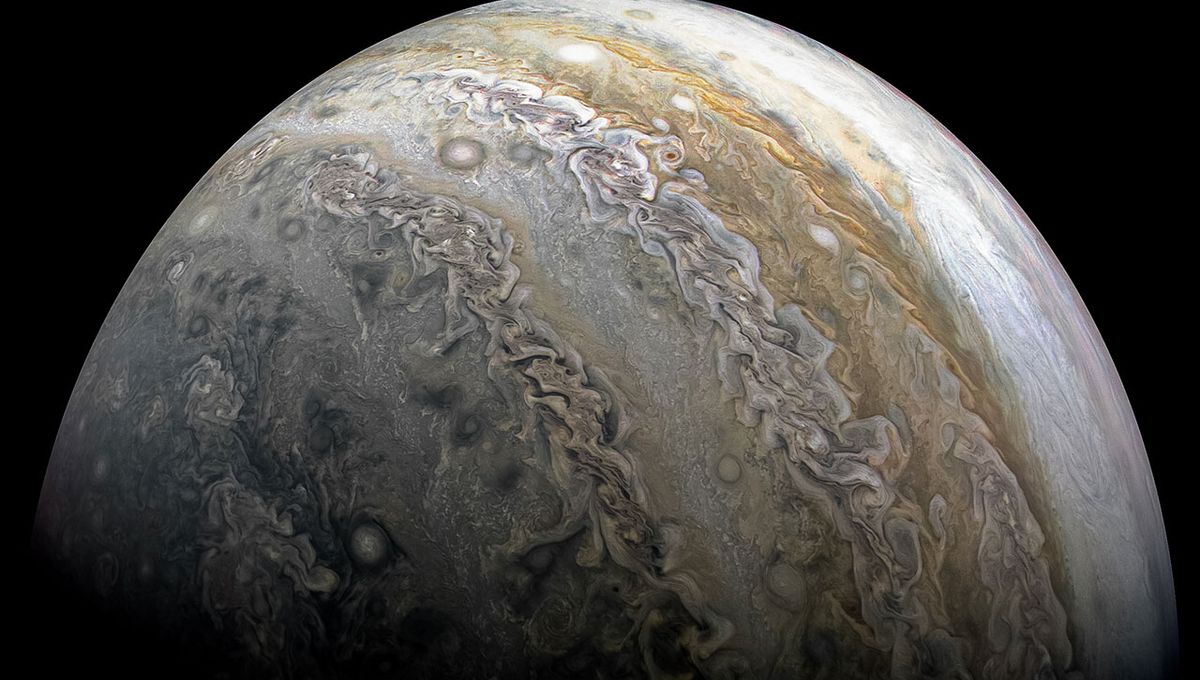
The European Space Agency mission JUICE launched last Friday with a lot of excitement and will reach Jupiter in 2031, after an 8-year journey. NASA’s Europa Clipper will launch next year and arrive in 2030. And yet the Voyager probes took just less than two years to get to the largest planet in the Solar System, and New Horizon did the same in just over 13 months. What gives?
The length of your journey to Jupiter, or to any world, very much depends on what you intend to do there. If it’s a flyby, like the Voyager probes, or Pioneer 10 and 11, or New Horizons, you can do it in less than two years. You just need a good initial kick and you’ll happily be on your way. But if you want to do more, like entering into orbit around the planet, you might have to choose a longer route.
Ultimately, it boils down to what kind of speed you need to be at for what you do. The quantity in question is the change in velocity (∆v, pronounced delta-vee) and if you want to get into orbit around Jupiter, like JUICE or Europa Clipper will do, or like Galileo and Juno did, you need to have enough. More than what a rocket can provide you at launch.
For JUICE, even squeezing every bit of power from the Ariane 5 rocket wouldn’t make it possible to get enough ∆v. Spacecraft engineers have no other option when it comes to this precious quantity. They have to steal it. The spacecraft steal orbital velocity from the planets of the Solar System.
“How do we get this extra ∆v? We use gravity assist maneuver,” Ignacio Tanco, JUICE Spacecraft operation manager, told IFLScience. “This is the only way that we have found to really get extra velocity from the Solar System. And it’s actually a very workable method, but it implies that you need to fly in a certain way, very precise, and you need to hit targets on the orbits around these planets which are tens of kilometers wide.”
As a spacecraft flies by a planet, thanks to the assistance of gravity it removes some of the planet’s orbital velocity. The planet’s orbit becomes slightly larger. But don’t worry, the effects of the theft are so small that they are not even measurable by the best instrument we have. But this thievery makes a huge difference for the probes.
When it comes to JUICE, it will go past Venus once and Earth three times, with the last one happening in April 2029, just over two years before reaching Jupiter. But the most interesting one will be next year because it is a flyby never attempted before.
“We found that in the first Earth flyby, the Moon was in a position that would allow us to get an extra kick by flying not only by the Earth, but doing first the Moon and then the Earth and then taking off from there,” Tanco explained to IFLScience.
JUICE has a lot to do around Jupiter and the team is saving all of its fuel for that work, including becoming the first spacecraft to orbit a moon other than our own when it goes around Ganymede. So everything that the spacecraft can get from the planets is fuel saved, and that means extra science. Even though we will have to wait a little longer for that science to begin.
Source Link: Why Do Spacecraft Take So Long To Get To Jupiter?